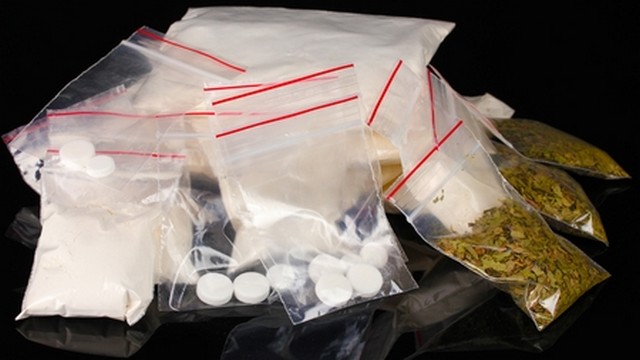Sex, drugs, and genes: Why some people morally condemn drugs

- Studies have consistently found that people who invest heavily in long-term, committed relationships are more likely to morally condemn the use of drugs.
- One hypothesis says that this is because drug use is associated with social settings and incentives that encourage more promiscuous sexual behavior.
- A recent study aimed to find out the extent to which views on drugs and sex might have a genetic component.
Why would anyone morally condemn other people’s drug use? After all, it is one thing to say murder or theft is immoral, considering both of those acts have a victim by definition. But using drugs is a victimless act, harming nobody besides, in some cases, the drug user himself.
The answer may lie in research that suggests the moral condemnation of drug use stems not from the act itself but from the kinds of social settings and incentives that commonly go hand-in-hand with using drugs. Sex is key to those social associations. For example, studies have shown that people who use drugs are more likely to have more sexual partners and more unprotected sex and that drugs are commonly used in social settings where people aim to hook up.
That’s fine for those who like drugs and sex. But what about people who invest heavily into long-term, committed relationships? For them, social environments where drug use is common and accepted might pose a threat because those settings are liable to encourage promiscuous sexual behavior.
A 2010 study found, for example, that what most strongly predicted college students’ moral views on drug use was not personality factors, disgust sensitivity, or political affiliation. Instead, it was their views on sexual behavior.
“People’s moral intuitions are (in part) designed to control and constrain others’ sexual activity in accordance with one’s own reproductive strategy,” the authors wrote. “Because recreational drug usage is strongly associated with greater promiscuity, people oppose recreational drugs as one part in a larger effort to control others’ sexual activity.”
Studies have consistently revealed strong connections between sexual strategy and the condemnation of drug use. But none of those studies have aimed to tease out the extent to which these attitudes stem from environmental or genetic factors. Aiming to fill that gap, a study recently published in Psychological Science surveyed more than 5,000 fraternal and identical twins about their attitudes toward drug use, sex, religiosity, political affiliations, and other factors.
A heritable component to the moral condemnation of drugs?
The survey used in the study included several different scales commonly used in psychological research. One measured sociosexual attitudes, asking respondents to answer questions or rate their agreement with statements like, “Sex without love is OK,” and, “With how many different partners have you had sexual intercourse without having an interest in a long-term committed relationship with this person?” Another scale measured disgust, specifically as it relates to sex, asking respondents to rate their disgust response to things like watching porn or performing oral sex.
Other scales measured respondents’ attitudes on drug use. After reading stories describing people using drugs at parties or with friends, the respondents rated their agreement with statements like, “Using MDMA in this way is morally wrong,” “People who use recreational drugs are dirty,” and, “It is ok to obtain drugs for the purpose of making you feel good.” The survey also collected measures of personality, religiosity, social dominance orientation, and right-wing authoritarianism.

The goal was to estimate the extent to which genes might account for moral attitudes on sex and the condemnation of drug use. Twins provide a useful model to explore these kinds of questions. Identical twins share almost all of their genes while fraternal twins share roughly half, meaning that trait similarities between identical twins are more likely to be explained by genetics.
That held true in the study. After controlling for measures like personality, religiosity, and political ideology, the results found that views on the morality of drug use and sexual behavior (at least as measured by the study) were explained by a roughly half-and-half mix of genes and environment.
“Twin modeling detected no influence of shared environmental effects — which presumably would include parental rearing, influence of siblings, socioeconomic status, or childhood neighborhood — on either condemnation of recreational drugs or sexual strategy,” the researchers wrote. “These findings run counter to the idea that within-family similarities in views toward drugs and sex reflect social transmission from parents to offspring; instead, such similarities appear to reflect shared genes.”
Still, the study only provided estimates as to the extent genes may influence views on sex and drugs. More broadly, complex behaviors are influenced by hundreds or thousands of genes, and it’s virtually impossible to tease out exactly which specific genes may encourage or discourage any specific behavior or disposition.
But the recent findings do highlight a broader fact about morality: Our moral compasses reflect not only the values we have learned or consciously reasoned through but also our own self-interests that we pursue through various strategies. And genes seem to play a considerable role in that process.





